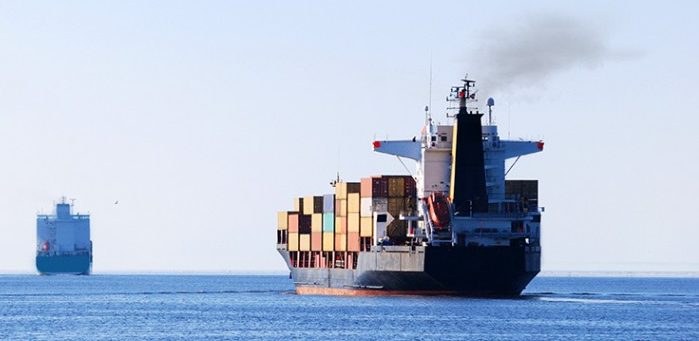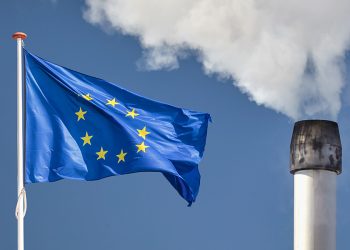The European Sustainable Shipping Forum (ESSF) 6th Plenary Meeting was held in Brussels on 28th June 2016 to discuss the way forward with regards to the delegated and implementing acts pursuant to the Regulation 2015/757 ‘EU MRV’. The EU MRV Regulation that came into force on 01st July 2015, foresees the development of such acts to define the technical details for an effective implementation of the regulation.
Under the umbrella of the ESSF, the European Commission set two expert groups: one group dealing with Monitoring and Reporting (M&R), and the other group dealing with Verification and Accreditation (V&A) of verifiers. Both groups have met five times in Brussels between July 2015 and May 2016. The outcome of their work was presented at the ESSF Plenary Meeting in the form of two reports reflecting the deliberations and recommendations of each working group. Verifavia Shipping was an active member of the MRV group on Verification & Accreditation but also followed closely the work of the MRV group on Monitoring & Reporting.
The main task of the M&R group was to define the rules for the determination of cargo carried on-board ships other than the three types already considered in the Regulation (passenger ships, container ships and ro-ro ships). The M&R group recommended relevant parameters for the reporting of cargo carried for oil tankers, chemical tankers, LNG carriers, gas carriers, bulk carriers, general cargo ships, refrigerated cargo ships, vehicle carriers, combination carriers, ro-pax, container / ro-ro cargo, and other ship types. In general, the proposed cargo parameter is the mass of the cargo on-board but for some ship types the volume of cargo on-board or the deadweight carried was deemed more relevant. The most challenging ship type to consider was the ro-pax, as the fuel consumption has to be split between the fuel used to transport passengers, and the fuel used to transport cargo – given that mixing passengers and cargo in the same energy efficiency parameter would not be pertinent.
The other tasks of the M&R group included recommendations for further technical guidance for monitoring fuel consumption and other parameters, including monitoring plan templates and rules for reporting using automated systems. Several issues have been identified with possible amendments of the regulation including: the measurement of fuel density, the use of IMO emission factors instead of IPCC factors, the determination of cargo carried on-board ro-ro ships, the definition of passenger ships, distance travelled, and time at sea.
The V&A group suggested detailed rules or guidance for some aspects of the verification (best practices, assessment of the monitoring plans, verification of the emission report, materiality level, uncertainty, risk analysis, site visits, etc.) and accreditation of verifiers (best practices, scope of accreditation, accreditation request, assessment of verifiers, competence requirements for verifiers and accreditation bodies, etc.). The main recommendation concerns the ISO 14065 international standard that is proposed to be used for the recognition of verifiers which is the same standard used in the EU Emissions Trading Sheme. According to the EU MRV Regulation, this accreditation would be granted by national accreditation bodies established pursuant to Regulation 765/2008.
The recommendations of the two MRV working groups are expected to be used by the Commission to prepare the draft delegated and implementing acts which will first be published for public consultation before coming into force in December 2016 at the latest. Finally, and in addition to the delegated and implementing acts, best practice, guidance documents, and FAQs will later be developed to facilitate the implementation and unified interpretation of the EU MRV Regulation. The accreditation of verifiers can only happen after the delegated and implementing acts have come into force. Verifavia Shipping is in the process of extending its existing scope of accreditation to include shipping and expects to be one of the first independent verifiers to be accredited in January 2017.
Written by Julien Dufour, CEO, Verifavia Shipping
Above article has been initially published at Verifavia Shipping website. You may view it by clicking here
The views presented hereabove are only those of the author and not necessarily those of GREEN4SEA and are for information sharing and discussion purposes only.
GREEN4SEA Team met Julien Dufour, CEO, Verifavia Shipping and Nikolas Theodorou, Managing Director, Verifavia Shipping (Hellas) at Posidonia 2016, June 6-10, Metropolitan Expo, Athens for an exclusive interview with respect to the MRV Regulation. View the video interview below
[divider]
About Julien Dufour, CEO, VERIFAVIA & VERIFAVIA SHIPPING
 Julien is a transport and environmental expert, verifier, researcher, speaker and moderator, with 20 years experience in the transport sector and 7 years experience in carbon emissions monitoring, reporting and verification. He is the Founder and CEO of Verifavia and Verifavia Shipping, the worldwide independent accredited carbon emissions verification bodies for aviation and maritime transport. Verifavia Shipping provides carbon emissions verification guidance and services that enable shipping companies to navigate the requirements of the EU Shipping Monitoring, Reporting and Verification (MRV) Regulation efficiently and effectively. By invitation of the European Commission, Julien is an active member of the ‘Shipping MRV group of experts on verification and accreditation’ under the European Sustainable Shipping Forum (ESSF). Julien holds a Masters in International Management from the ESCP Europe business school.
Julien is a transport and environmental expert, verifier, researcher, speaker and moderator, with 20 years experience in the transport sector and 7 years experience in carbon emissions monitoring, reporting and verification. He is the Founder and CEO of Verifavia and Verifavia Shipping, the worldwide independent accredited carbon emissions verification bodies for aviation and maritime transport. Verifavia Shipping provides carbon emissions verification guidance and services that enable shipping companies to navigate the requirements of the EU Shipping Monitoring, Reporting and Verification (MRV) Regulation efficiently and effectively. By invitation of the European Commission, Julien is an active member of the ‘Shipping MRV group of experts on verification and accreditation’ under the European Sustainable Shipping Forum (ESSF). Julien holds a Masters in International Management from the ESCP Europe business school.






























































